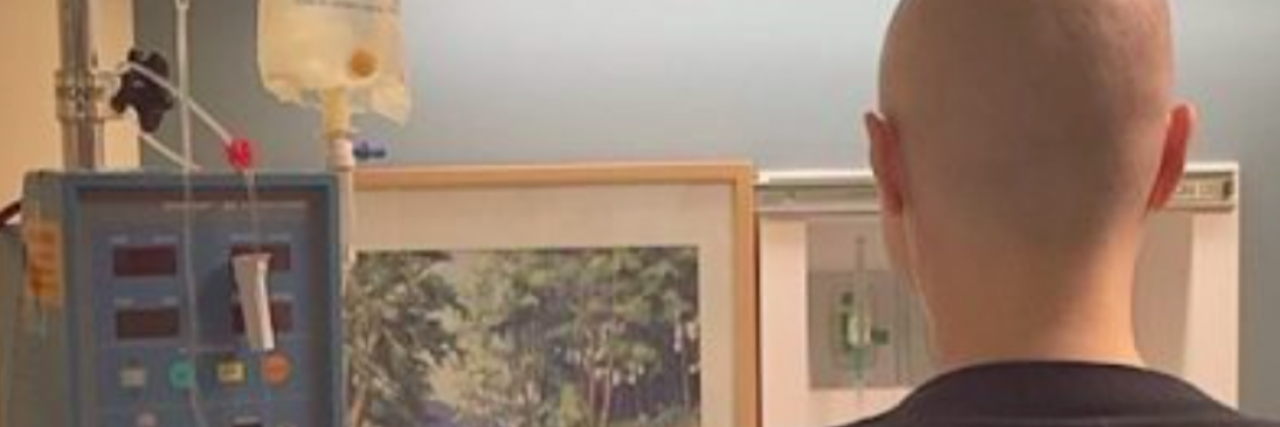As a young bride barely off her honeymoon, I was diagnosed with a rare illness and told I would be lucky to see the age of 30. My disease quickly took essential functions I never realized were a true privilege. Eating — biting into a delicious, juicy cheeseburger — abruptly become impossible. Now I had a tube. Breathing, simply walking and talking to an acquaintance, became unfeasible. Now I had a tank. My months suddenly consisted of 16-plus doctor’s appointments and a bombardment of constant procedures — just to stay alive. Chemotherapy wracked my fragile body every month in an attempt to destroy my malfunctioning immune system, which believed my crucial organs, blood vessels and skin were foreign invaders. In an instant, it felt like my life, my husband’s life and my family’s life were destroyed.
Yet, through this unbelievable grief, pain and struggle, those around me seem to believe my illness, the fatal illness that seized my body and destroyed the quality of life I had left to live, was somehow less tasking than another.
“At least it’s not cancer.”
While many individuals are genuinely trying to be supportive by saying this phrase, it comes off as anything but. The statement can bring on genuine emotional distress to those enduring rare illness, making them feel as though their anguish isn’t important. Stating that one’s disease is less distressing than another is not only unhelpful to a patient’s situation, but extremely prejudiced. The phrase is frequently based not on facts regarding both illnesses, but on one’s general understanding that cancer is deadly and its treatment is harsh. With media attention focused heavily on the devastation of cancer, I believe society has no idea how life-altering and fatal other diseases can be — because they don’t know about them.
Comparing diseases is a disrespectful habit many people do not even realize they have formed. Many illnesses, such as systemic sclerosis, which I suffer from, are rare. There is a lack of knowledge regarding their severity and detriment to the body. While you may never have heard of this illness, it does not mean I am better off than if I were to be suffering from cancer. The truth of the matter is — many diseases can destroy lives.
Please be aware that I am not writing in an attempt to sway readers that one disease is worse than another — I’m writing to show the similarities that rare illness and cancer patients share. Hopefully, this awareness can bring about a positive change in the way we support all individuals fighting disease. Let’s look at a few of the similarities between cancer and my illness, systemic sclerosis:
1. Both diseases, depending on the severity or form, can severely limit a patient’s quality of life. Both can strip away a person’s basic human functions, such as breathing and eating, as well as their mobility, appearance, independence, social life, business life and financial stability. Many rely on medical equipment like oxygen tanks, central lines and feeding tubes, as well as an overwhelming amount of medication and skilled physician care.
2. As in cancer, many systemic sclerosis patients can undergo intensive chemotherapy and even stem cell and bone marrow transplants. They might lose their hair, their fertility, spend countless hours vomiting, and experience other horrendous side effects from these treatments, including death.
3. Many people have been affected by cancer mortality in some way, whether it be a loved one, a friend or a coworker. You may know someone who has passed away due to cancer. Systemic sclerosis, and rare illnesses like it, can also be life-threatening. Many patients might face a short prognosis upon diagnosis.
The reality is, both diseases have different stages, and forms, leaving some patients a prosperous prognosis and others a poor prognosis. A patient’s quality of life, their treatments plans, and overall outcome varies greatly depending on the organs affected in both cancer and rare illness.
Please recognize that comparing one’s illness to another is not an appropriate way to console a suffering individual. Would you ever express to a cancer patient, “At least it’s not ________”? More than likely the answer is no, so let’s break this negative habit. Everyone fighting a battle deserves to be respected and extended empathy, whether you have heard of their illness or not.

